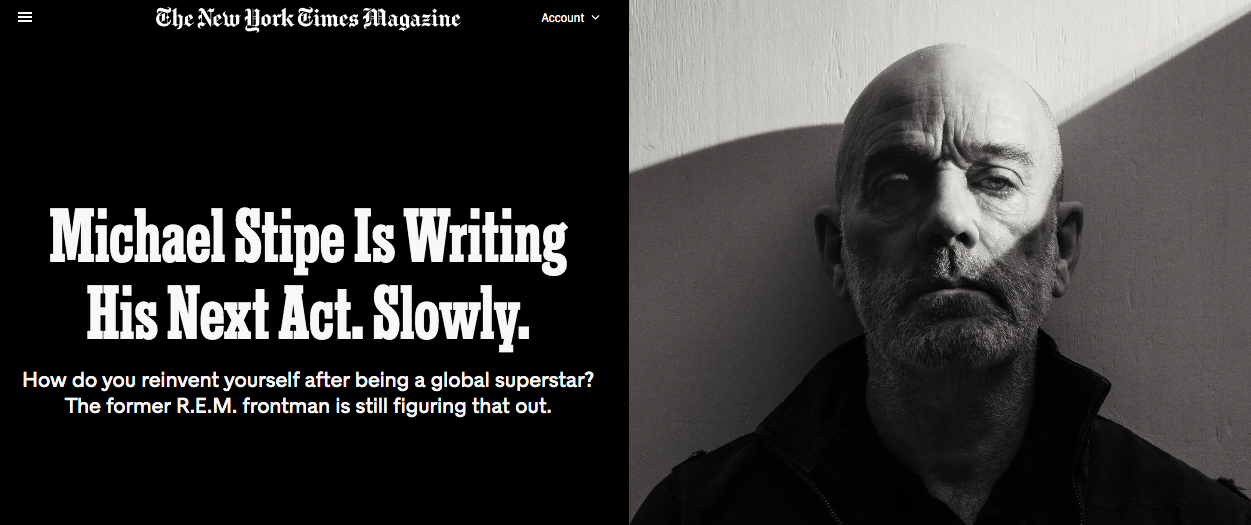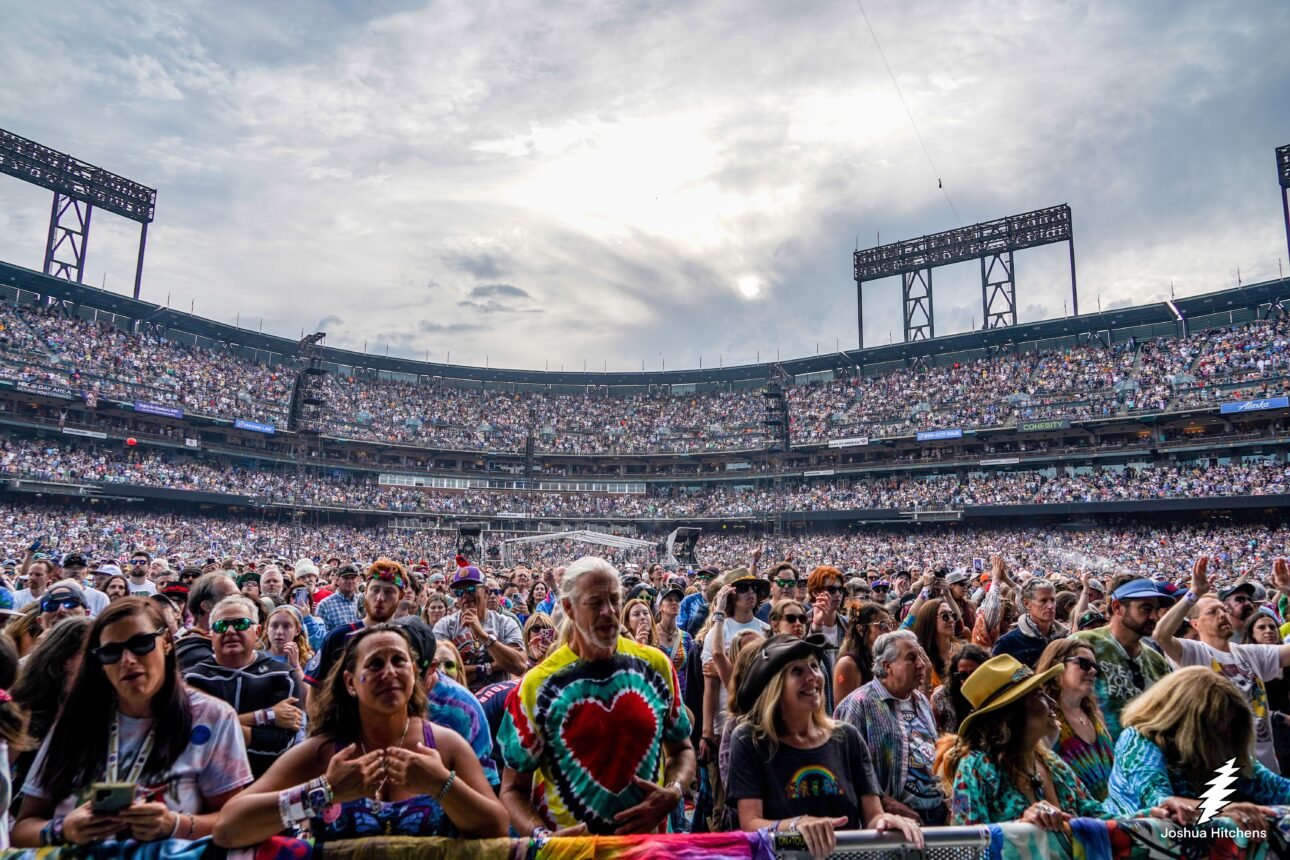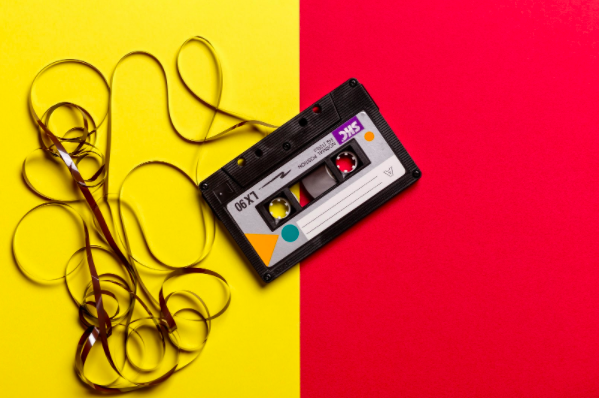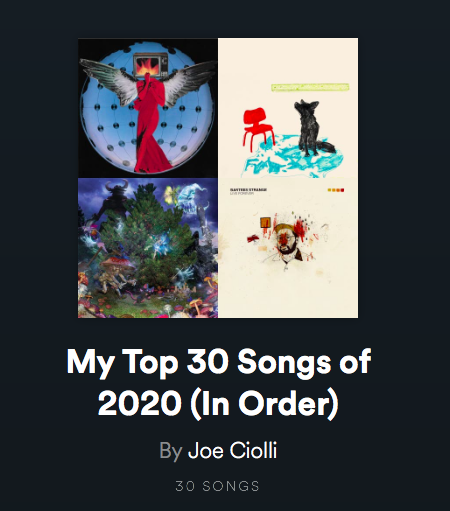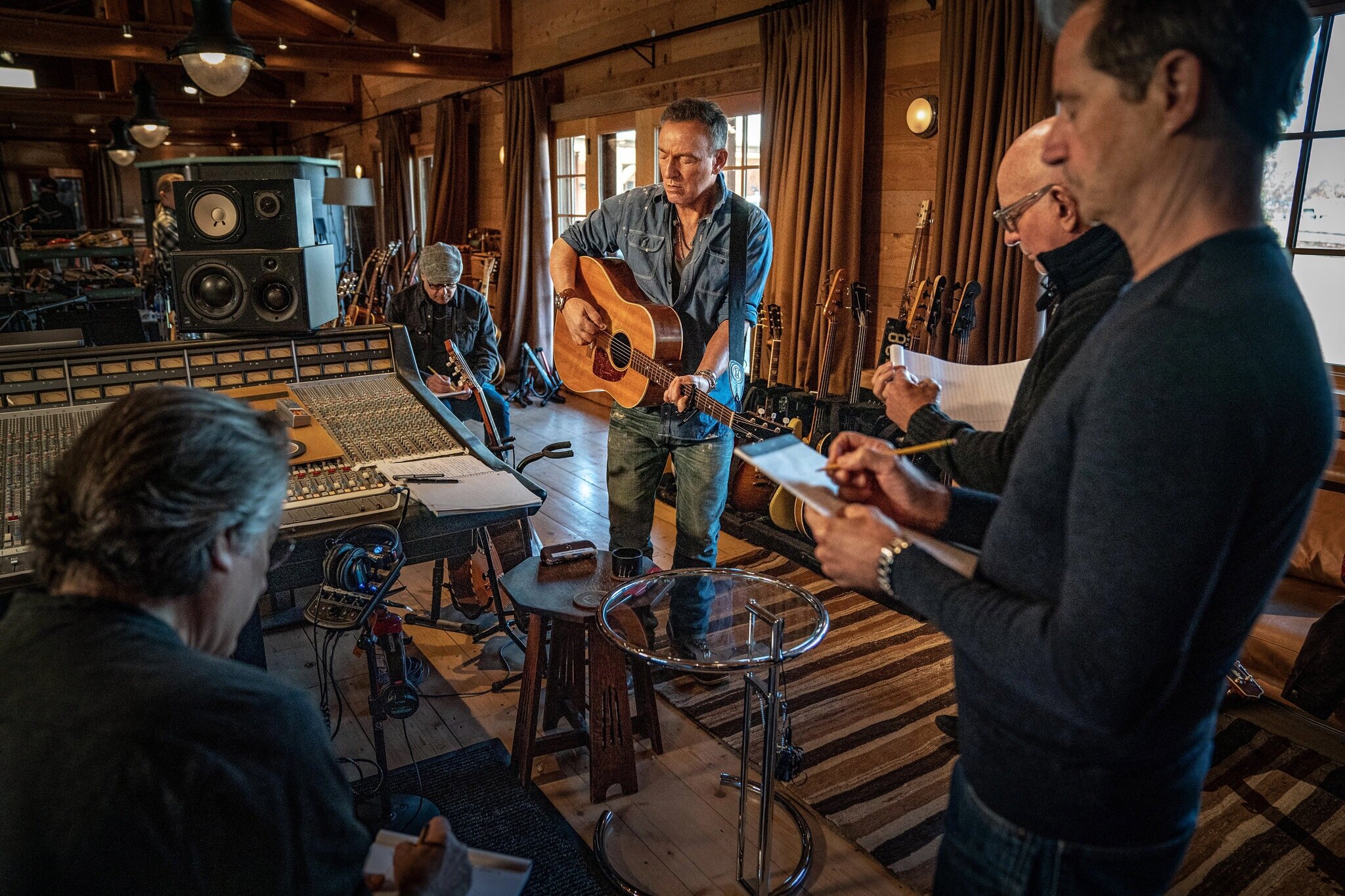“So, Shadow Kingdom was like the sequel – Jack Fate let out of prison on a plea deal, agreeing to do a different benefit concert, in support of a different cause. This time, he’s told the proceeds would help the real victims of this plague, these lockdowns, these wholesale quarantines, victims of the virus and victims of the vaccine, a transient amnesty for private & public thought criminals. ‘The network’s sure it’ll sell real well,’ Jessica Lange, reprising her role as Nina Veronica, explains to Jack Fate, who’s spent the last twenty years in a prison with little to no access to the outside world, not unlike yourself,” I tell him.
Will nods, a bit exasperated with my verbosity, but he’s with me; maybe you are too.
I continue: “The miscalled concert’s prerecorded and broadcast on a pay-per-view basis, and this time the show’s allowed to go on, available to one and all with a hundred shekels and a hand machine... Directed by the talented Israelian-American lady, a redhead, Alma Har’el, who directed Honey Boy” –
“Wonderin’ if she changed at all, if her hair was still red,” whispers Will wistfully, wearily. I’m losing him, somewhere in the wilderness. Poor Will has been locked up too long; he don’t know Shia from Shinola.
“So this sequel’s more of a prequel, aesthetically. Dylan’s back in time, black and white, like Casablanca set in Equatorial Guinea, Bob Dylan as Humphrey Bogart or Brando off the waterfront, in Paris Texas, or Brownsville, New Orleans before the flood, a few different sets on this postwar, pre-sixties-feeling fantasy, neither utopian nor dystopian, a cigarette world where everybody smokes constantly. Bob’s band’s members are all young, thin, masked, angels dressed in black every one. Bob wore a different Bob Dylan costume for each set, embroidered Western dark blazer, pattern print shirt untucked, probably a bolo with the white blazer, I can’t remember. He looked great. Like Muhammad Ali, he always looks the same. His hair is always Bob Dylan length, width, height. Bobby D! Five-foot-seven, five-nine with the Ashkenazi-afro. He’s at his ideal Bo-jangling weight, rail-thin, jail-pale, just singing his skinny ass off!”
“Which songs did he play?” asks Will, who’s yet to hear Rough & Rowdy Ways, Tempest, Together Through Life – the last album he had the free will to buy was Love & Theft.
“Old ones, mostly – the show was billed as Bob Dylan Performs His Early Songs, or something like that” –
“What’d he open with?” bemoans Will, understandably anxious.
“Masterpiece!” I beam. “Crooning somewhere between his Bob Dylan Frank Sinatra and the great grandfather of Americana sweetness he evoked on ‘Murder Most Foul’ – blood of the land in his voice... I couldn’t help but be reminded of the nuanced growl of Together Through Life, but maybe it was just the accordion accompaniment.”
“Who played the accordion?”
“I have no idea, but there was no drummer. Bob, more or less unplugged, eighty fucking years old, depending on his vocal acuity as much, if not more, than ever... Brazen!”
“Like Zazen.”
“Well, I guess!”
“How many songs”
“Thirteen! Lucky thirteen.”
“Lucky Wilbury.”
“Indeed! Oh Roy Orbison would have loved it. It was the first Dylan performance which struck me as Cohen-ish.”
“Cornish?”
“No, Leonard Cohen-esque. His latter-day tours, Leonard gave these performances that oozed devotion, Bhakti yogi Cohen – Bob’s aura more boxer than monk, with both fists clenched, summoning Age of Horus sound healing, that special penetrating magic only accessible to those whose reflexes aren’t shot and who are willing and able to accept it.”
“Accept what?”
“The whole base premise of Bob Dylan.”
“That his only orthodoxy is unpredictability?”
“Exactly.”
“Give me some highlights, I’m running out of time.”
“After Masterpiece he reaches base safely with five middle-sixties classics – Queen Jane; Tom Thumb’s Blues; Tombstone Blues! ... this incredible, super passionate, wholly reworked ‘To Be Alone with You’ as desperate dirge – I never thought that tune would move me to tears. And then out of nowhere, as if his contrarian mirror mind intuited the criticisms he knew he was bound to receive for these first seven stellar renditions, Dylanditions... He hits a stand-up inside-the-park homerun with What Was it You Wanted? with this short but sweet harp solo...”
“Oh mercy!”
“Right! Then he smashes this Frank Sinatra slash Rick Rubin - Johnny Cash Forever Young clear out of the stadium...”
“The cross is in the ballpark.”
“Why deny the obvious child?!”
“What came after Forever Young?”
“Pledging My Time! And boy was he! Pledging his time, to all of us, hoping we’d come thru, too...”
“And did we? What was the reaction?”
“Mixed! Most people stopped short of accusing Bob of being the Wicked Messenger – he played that too – but yeah, hilarious, the palpable disappointment from the Nitpickers’ Quarter.”
“Ha! The nitwits do love to pick nits, don’t they?!”
“Don’t I know it!”
“What’d he close with?”
“Baby Blue.”
“Of course.”
“Selah.”
***
Bob Dylan can’t be quantified, qualified, classified. The specificities I dealt to fictional Will the Inmate fail to impart familiar, familial feelings of flying and grounding, of autonomy and connectedness, all the paradoxical personal truths Dylan always provokes, reinforces, reveals, to me, sometimes, seemingly for me. Only a fool here would think he has anything to prove... To live outside the law you must be honest... It ain’t he or she or them or it that you belong to... It applies to me, it applies to you. It’s true for Bob, too.
So many Dylan devotees, tangled up in psychospiritual, semantical blues. It’s like they’re offended by their own meaninglessness, didn’t Cate Blanchett’s Jude Quinn Dylan say something like that? Nah, I ain’t callin’ y’all Judas or comparing your whininess to those who shouted Judas at Bob in ’66. But you are Bob’s boo-birds in modern times. You’ve bombarded the Dylan chatrooms with drivel... and I, for one, thank you. Thank you for showing up – no Dylan event would be complete without its detractors, overburdened as they be, with twenty pounds of headlines stapled to their chests, those most convinced Ballad of a Thin Man ain’t about them, on time, as always, to fill their role as the uncountable quotient we’ll call the Mister Jones Contingent. Faction? What fraction? No clue. Those of us tickled down to their cockles probably wouldn’t have said diddly-poo aside from yoo-hoo, had we not been immediately inundated with the live stream of comments, which resumed on our screens after Baby Blue faded to black.
I was born the year of Blood on the Tracks, in the smoky incense afterglow of Ginsberg, Cassady and Kerouac, and undoubtedly destined to be derided among those who secretly deem themselves members of the B.D.I. (Bob Dylan Intelligentsia) as dilettantish for our ... our dumb luck, some of us batting close to a thousand when served up pitches from Dylan. We don’t need him to play the hits. Long as he doesn’t suddenly start playing Neighborhood Bully, I’m happy. We ain’t the majority, and we don’t stay silent. We are the few, unproud, just contented. As one of Bob’s continually satiated fans, one of Columbia-Sony’s eternally satisfied customers, I ain’t no Dylanologist. I’m just a Berkeley Boy destined to adore Bob Dylan, if for no other reason than that some of my fondest childhood imageries of my overworked, traumatized father are precious memories of him listening to Bob Dylan, singing along with Bob in the car, back when my mother was still alive. Death has followed me, tracked me down, but at least I heard Bob Dylan sing. As least I heard him, not my own voice.
I’m lucky enough to not take Bob for granted. People tell me that I’m truly blessed... I’ve plumb witnessed too much death to take Elderly Dylan for granted – that he’s made it this far and is still with us, together through life, for at least one more show. That he just shared with the world, his Rough & Rowdy Ways, when, I for one, needed it more than I already knew I did… and would – I had a dark hunch this pandemic wasn’t gonna blow over fast.
I was waiting for a second pelvic ultrasound, a non-emergency scenario in a private hospital in Goa, when I saw the news on my German girlfriend’s hand machine that the National Basketball Association had suspended its season, indefinitely. I don’t pretend to be an expert on anything other than my own gastronomical preferences and other idiosyncratic intimacies pertaining to my own peeves, penchants, predilections. I don’t even claim to be an expert w/r/t my own problems. But sat in that hospital, I knew it might be longer than my internal structures would have liked before seeing Bob Dylan & His Band live & in person ~ if the NBA was done for indefinitely, then for sure, the Neverending Tour, too, would be forced to grind to a halt.
“The NBA just cancelled itself, we gotta get outta here, now!” I proclaimed to Fraulein, and like Bonnie & Clyde thieving Time & Space, the two of us hightailed back to our adopted Subcontinental home, one state to the south, where I’ve been permitted refuge from the grand debacle and from where I won’t budge till I’m forced to... Down along this as yet virus-free rice paddy alcove, I type to you now, a little spot I’ll call Key West, Karnataka.
Like everyone on this doomed planet, whatever you may believe its shape to be, the shape it’s in... is rough, its inhabitants rowdy, ravaged. I’d add Pinker, with his war’s never been better!, to Bob’s recent listing of mankind’s worst enemies, burning hell dwellers. Mister Freud with his dreams, Mister Marx with his ax and privileged Mister Pinker with his Pollyanna point of view, shouting from his tower, telling us how great it is, for those with no power, in this Political World, where Everything is Broken. I wonder how many Shadow Kingdom detractors also took issue with that lyric from ‘My Own Version of You.’ Somebody can make the Venn diagram, the meme.
One need not leave the planet to find heaven, hell. I cannot think of a higher (lower?) rung on the ladder of unnecessary suffering than that occupied by Dylan’s omnipresent nitpickers – somebody needs to hand these people a pipe, tell them it’s too bad they aren’t the silent type, hand ‘em a book of poems by an Italian poet from the thirteenth century... “Only a shadow of transcendence,” was one of the headlines I read. Oh, aww... near-complete-transcendence wasn’t enough for ya!? I’m afraid it’s tough titty to all those who’ve come to expect transcendence every time Bob takes the stage, for anything. How such words are tossed about! Bob Dylan at 80, no longer as insanely transcendent as he was at 25 and 33 and 56 and 72! I disagree, wholeheartedly, but who cares?! Certainly not Bobby.
Shadow Kingdom, whatever it’d be, was slated to broadcast across my computer screen at 2:30AM, subcontinental time. Around midnight, I thought I’d never make it – no matter, wasn’t essential to catch it “live” anyhow... Like anyone else who’d watched the 36-second trailer, I knew damn well it wasn’t a live performance and the only reason to stay up late had to do with my own addiction to nocturnality, my desire to satiate my own impatience – Can’t Wait – like most people I reckon, this world crisis, this opaque plague, this unending stream of uncertainty, confinement, restriction, confusion, this accumulation, this traumatic avalanche of collective angst – Every new messenger bringing evil reports of famines and earthquakes and train wrecks and hate words scribbled on walls – has left me starving and thirsting for any joy on any nebulous schedule, western civilization mid-implosion, the old Kali Yuga not going down without a fight, without stealing as many of our minds and souls as she (Kali) can succubus and/or incubus up... Right? So yeah, whatever Bob would do in these modern times, amid this modern plague, call me silly, but it was gonna be alright with me.
I made coffee, dressed in black, and summoned a bit of that Bourbon Street spirit – 2:30 in the morning is the perfect time for a worldwide Bob Dylan event to begin... The preshow stream was as cutely charming as the postscript divisiveness was comedy noir. Folks tuned into that pirate radio station chiming in from across this sad red earth. Oslo, Berlin, Tokyo, Wuhan, Saskatchewan, Taiwan, everybody the world over, eager to see what the electric dragon Dylan might have up his sleeve. Maybe had you stayed up till dawn battling intermittent Indian internet, dodging pterodactyl mosquitoes, ceiling fan broken, heat in the bed, etc.... Well, shit, you’d probably be exponentially more disdainful and disillusioned than you were and are, having visited the Shadow Kingdom at a more reasonable hour of the day, sans tropical monsoon jungle wildlife, but maybe, had you watched the show here with me, we might have filled your cup.
***
It’s hard to believe it was less than a full year before the flood of paranormal paranoia, great toilet paper panic, Kafkaesque pandemonium of promised plague that evaporated concertgoing and all other social functions, that I caught “The Inimitable Bob Dylan & His Band, Live & in Person, in Show & Concert,” as it says on the t-shirt I bought at the Singapore show. It’s a great shirt. No image of Bob, but in his stead: a buxom burlesque dancer and these ornate phrases from the neverendingly endearing Dylan lexicon. A couple months later, I caught up with B. Dyl in the desert: Tucson and Phoenix, wherein — whereat...I was fortunate enough to be able to afford seats up near to the teacher, second row, south by southwest of the piano, less than twenty feet from the Tambourine Man of Desolation Row.
I wasn’t a kid, but I was still young, when I went to my first Dylan concert. I didn’t know what to expect. He was in his fifties, and to a man in his twenties, well, shit, Bob might as well have already turned eighty – his booted footprints appeared ancient in my adolescent eyes. ... some of the best music in his career, beginning in the late nineties, Columbia recording artist... He played ‘My Back Pages’ that night, blew the harp on it. The whole show blew my mind, symbolized in this exhibition, this exposition, this undeniable experiential reality, the eternal truth, of music, of language, of time, shattered illusions of linearity. He was... so much older than that then.... He was so much younger than that now. Maybe a quarter, maybe a third, maybe only one in ten of my fellow concertgoers left that show in a spellbound state of wow & vow. Filing out of the venue and spilling into the parking lot, some highly audible quotient of the audience reverberated their depraved disappointment, drunken disapproval, downright dejectedness, decadent doldrums for which they pointed their disdainful fingers directly at Bob D. He hadn’t played this, he didn’t play that, such and such wasn’t recognizable, they’d expected X and gotten Y, and why oh why hadn’t Bob been the Bob they were banking on him being. I was dumbfounded, and highly entertained at this unexpected deviance, reactively, reflexively, it somehow rounded out the whole Dylan experience – people are crazy and times are strange...
A quarter century of Bob Dylan concert experiences later, it tickles my soul to behold the bizarre phenomena which accompanies this singular performer – singular on so many levels artistically, linguistically, charismatically, but more strikingly this singular performer’s absolute disinterest in receiving approval from his audience and the indignant reaction this attitude, what I might reductively deem Bob Dylan’s now-ness, provokes in an unknowable percentage of his devotees, who bring with them antiquated luggage filled with yesteryear expectations of the man who looks like he’s moving when he’s standing still, the musician who stands still like the hummingbird... Time Out of Mind, Love & Theft, Modern Times, Together Through Life, Tempest. The album titles say it all. Everyone is so thoroughly convinced the Bob they just saw was somehow fundamentally different from whatever version of him they saw some other time. Dylan’s never once “reinvented” himself. Sure, the mid 2010’s weren’t very much like the Rolling Thunder Revue, but Dylan’s always more similar to a slightly more atavistic Dylan than he is to anyone else.
Dylan’s “value,” “relevance,” is eternal. He’s consistently inconsistent. Always in a funky, very cozy looking, Western-y costume, ten gallon hat or morass of curls commando, he’s always so Bob Dylan, so dissimilar to all those other performers he essentially birthed. Even the iconic punk rockers shared a symbiosis with their audiences Dylan has never sought. It’s the only place Bob can truly be himself, or so I’ve read he’s allegedly said. And this is the magic, the blessing & curse belonging solely to one Robert Allen Zimmerman. It’s not our cross to bear. We are not him, he is not us, he’s nobody’s spokesman and there’s no cause or grand purpose or ideology behind any of it. Jack Fate. There’s something eternally true – in song, music – the only truth, the only fuel, for certain people. The only thing to believe in.
It’s as if the Dylan detractors disdain the multitudinous nature of this singular songwriter, song & dance man, harmonica blower, guitar picker, pianist, this actor, the best actor, best poet, rapping wordsmith, the best singer... singer as in the deliverer of a song, the best spoken word rambler, occasional mumbler, back to the crowd, holder of the crown, in his own mind, the only mind over which he imagines to have any potential control – I don’t believe my thoughts, but were I was pressed to present my Beliefs About Bob Dylan I’d bet: Bob Dylan has faith in his conception of God and in Bobby Zimmerman’s ability play the role of Bob Dylan and that Bob Dylan still can’t believe people insisted he was the Voice of a Generation when he knew damn well he was nothing more than the voice of some kid born to the name Robert Zimmerman and a vessel capable of channeling all the ghosts in America’s tower of song. Love is theft, art is theft, theft a meaningless word when everybody knows the Golden Rule is that those with the gold, rule.
Bob Dylan: genius of not forcing nothing, committed to his craft without dogma or pedantry or delusions of perfection. Like his hero Rimbaud declared all artists must be, Bob Dylan remains absolutely modern. Evocative of lost time (not found again), stark reminder of the eternality of human experience, at least in this Age of the Antichrist, still just only begun.
Time itself, conceptually and practically, is strange. Time flies when you’re having fun, so says everyone, but is it true? Not if you’ve taken some stiff psychotropic stuff, or have otherwise transported oneself outside the mainframe conception of Time, in which case, a lot of fun feels absolutely eternal. Definitions of fun, to be fair, vary drastically. Fun for me means simply what feels good, what feels best, according to my personal hierarchy of pleasure, fun is the grand umbrella under which everything good fall. Funny feels fabulous; feeling funny, being around funny people, is fun, but everything that’s fun isn’t necessarily funny. I’m lucky, most of my life has been pretty damn fun. I was lucky to learn early that working hard at something you loved was fun. The friends fate handed me, the art I was exposed to, the stimuli my body’s anachronistic antennae attuned itself to, taught me that with friends armed with reckless honesty, damn near anything could be fun, or if not fun at the time, at least funny to look back on later. The most fun experiences for me have been the non-traumas that held enough power – (in my case the Power of the Seven Seas, the 13:20 frequency, tuned often to the Key of C) – to tattoo themselves to my Akashic soul in ways that transcend the traumas, as there is nothing fun whatever when it comes to true trauma. Wisdom and creativity may spring from suffering, but the realization of this is merely bittersweet, and bittersweet isn’t fun. Perhaps for trivialities and frivolities, time flies. Bob Dylan shows have never once flown by, because he sings Bob Dylan songs and Bob Dylan songs have a lot of verses and last forever. It takes a while to listen to Sad-Eyed Lady of the Lowlands, Highlands, Murder Most Foul or Roll on John, requiring an attention span well beyond average nowadays. Maybe their favorite songs just fly by. Even Bob’s songs that are shorter in length produce a residual twilight... Endlessness, when it comes to the spiritual material produced by my favorite artist, conjures the phrase: the eternality of fun.
Time passes slowly, when you’re looking for love
Now that shit is true. And another thing, To search for love ain’t no more than vanity...
For those disappointed with Shadow Kingdom’s running time, we turn to Bruce Dern as Jeff Bridges’ draconian newspaper editor in the aforementioned, under-appreciated masked & anonymous. Bridges tells Dern that he doesn’t have a lot of time.
“Time? Abraham Lincoln gave the famed Gettysburg Address in five minutes! So don’t talk to me about time!”
Time is an illusion, timing is everything.
Take what you have gathered from coincidence.
Shadow Kingdom’s ‘Most Likely You’ll Go Your Way and I’ll Go Mine’ and ‘To Be Alone with You’ hit so close to home, having been hoodwinked by cruel & unusual circumstance - the world crisis - into an untenable, undeterminable, divinely ordained long-distance debacle with Bonnie Fraulein. Egad, alas, we did our damndest to create a shadow kingdom, in which our burgeoning love could incubate, cohabitate, despite we being born to different passports.
I dedicate this to her, whose mind is not with me, but the country to where she’s going. Another girl from another north country, who once was a true love of mine, who’s had me singing Huck’s Tune.
* Alternate Outtake Titles:
BUT THE TEARS ON HER CHEEK ARE FROM LAUGHTER... Jeremiah Twain on the Art of Loving Anything (Improved by Sanskrit, Arabic & Vitamin Bobby D)
or
A Dylan Show inside Existential Gitmo (Infinity Gone up on Trial)



